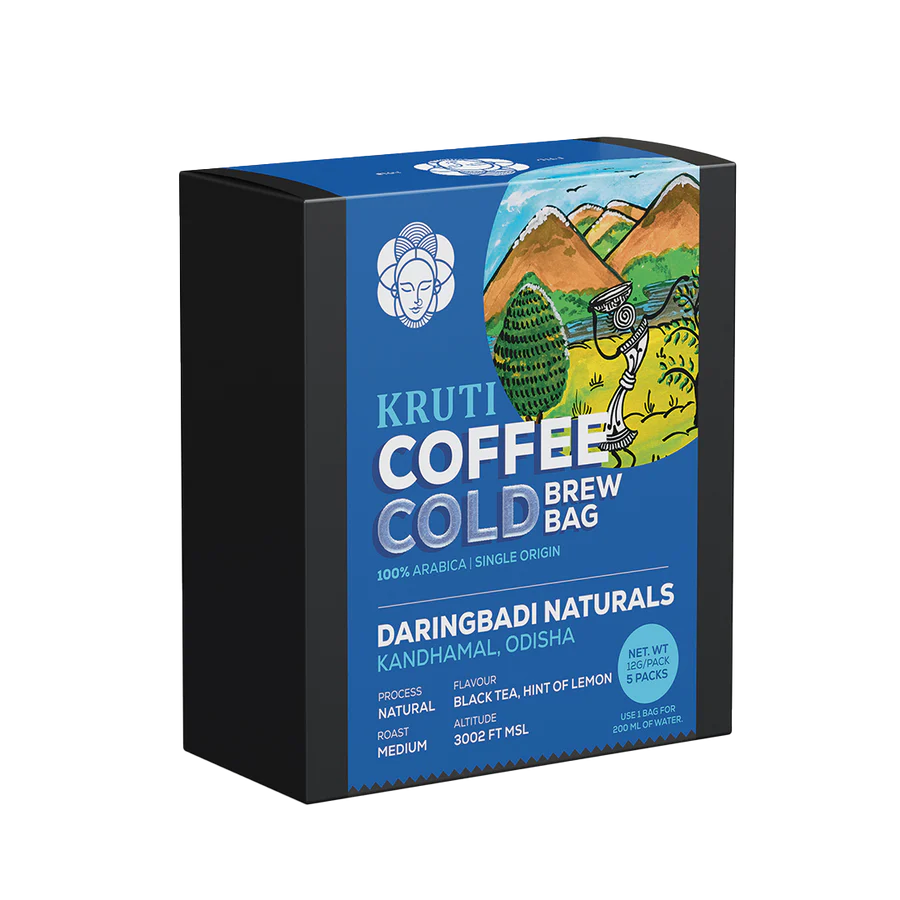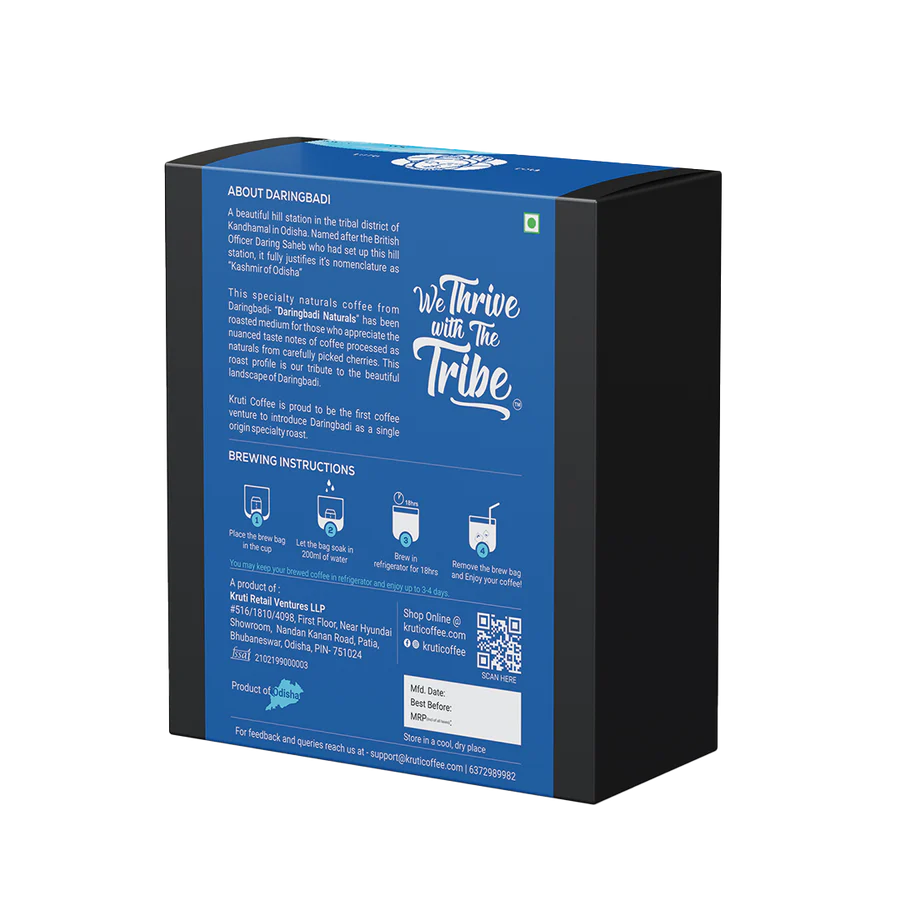Kruti Coffee – Daringbadi Naturals Cold Brew Bag | Medium Roast – pack of 5
₹175.0
-
Product Info
100% ARABICA | SINGLE ORIGIN
PROCESS: NATURALS FLAVOUR: BLACK TEA, HINT OF LEMON
ROAST: MEDIUM ALTITUDE: 3002 FT MSL
ORIGIN: KANDHAMAL, ODISHA
QUANTITY: 5 COLD BREW BAGS (EACH 12 GRAM)
These cold brew bags have been specially designed to make brewing easy for you at home or as you travel. Please refer packaging for brewing instruction.
This specialty naturals coffee from Daringbadi – “Daringbadi Naturals” has been roasted medium for those who appreciate the nuanced taste notes of coffee processed as naturals from carefully picked cherries. This roast profile is our tribute to the beautiful landscape of Daringbadi. Kruti Coffee is proud to be the first Coffee Venture to introduce Daringbadi as a single origin specialty roast.
About Daringbadi : A beautiful hill station in the tribal district of Kandhamal in Odisha. Named after the British Officer Daring Saheb who had set up this hill station, it fully justifies it’s nomenclature as “Kashmir of Odisha“.
- Description
- Additional information
- Reviews (0)
- Q & A
- Sustainability Remark
- More Offers
- Store Policies
- Inquiries
| brands | Kruti Coffee |
|---|
You must be logged in to post a review.
Q & A
Organic coffee is often considered more sustainable than conventionally grown coffee due to its cultivation practices and environmental impact. Here are some key aspects highlighting the sustainability of organic coffee:
Environmental Benefits: Organic coffee farming avoids the use of synthetic pesticides, herbicides, and fertilizers. Instead, it relies on natural alternatives and practices such as composting, crop rotation, and shade-grown methods. This reduces chemical pollution, preserves soil health, promotes biodiversity, and protects natural habitats.
Healthier Ecosystems: Organic coffee farms provide habitat for a variety of wildlife, including birds, insects, and other beneficial organisms. By avoiding harmful chemicals, organic farming supports the overall balance and health of ecosystems, contributing to the conservation of biodiversity.
Soil Conservation: Organic coffee farming methods focus on building and maintaining healthy soils. Organic practices, such as composting and the use of cover crops, help enhance soil fertility, structure, and water retention. This reduces erosion and soil degradation, promoting long-term soil health and preventing nutrient runoff into water bodies.
Water Conservation: Organic coffee farming often employs shade-grown techniques that protect water resources. The shade trees act as a natural canopy, reducing evaporation and helping to maintain soil moisture. Additionally, organic practices promote the natural filtration of water, minimizing the risk of water contamination.
Health Benefits for Farmers and Consumers: Organic coffee farming prioritizes the well-being of farmers and their communities. By eliminating exposure to toxic chemicals, organic practices reduce health risks for farmers and workers. Moreover, organic coffee is often produced under fair trade or ethical certifications, ensuring better wages, labor conditions, and social development for coffee-growing communities.
Market Demand and Premium Pricing: The increasing global demand for sustainable and organic products has created a market niche for organic coffee. Farmers who adopt organic practices can often command higher prices for their products, providing economic incentives for sustainability and supporting the livelihoods of small-scale coffee producers.
While organic coffee offers numerous sustainability benefits, it is important to note that sustainability is a complex and multifaceted concept. Other factors such as transportation, packaging, and fair trade practices also play a role in determining the overall sustainability of coffee production and consumption.
General Inquiries
There are no inquiries yet.



















Reviews
There are no reviews yet.